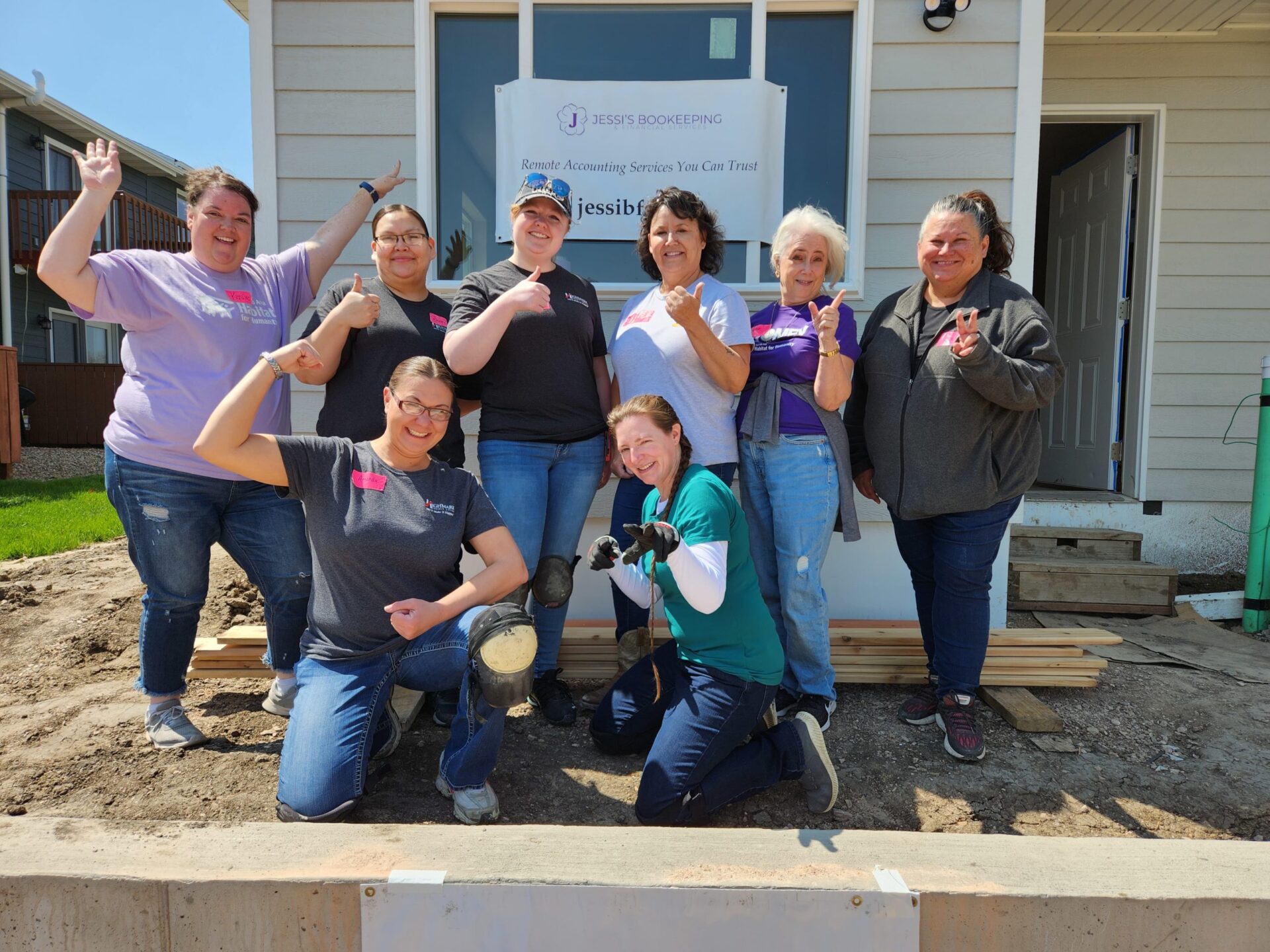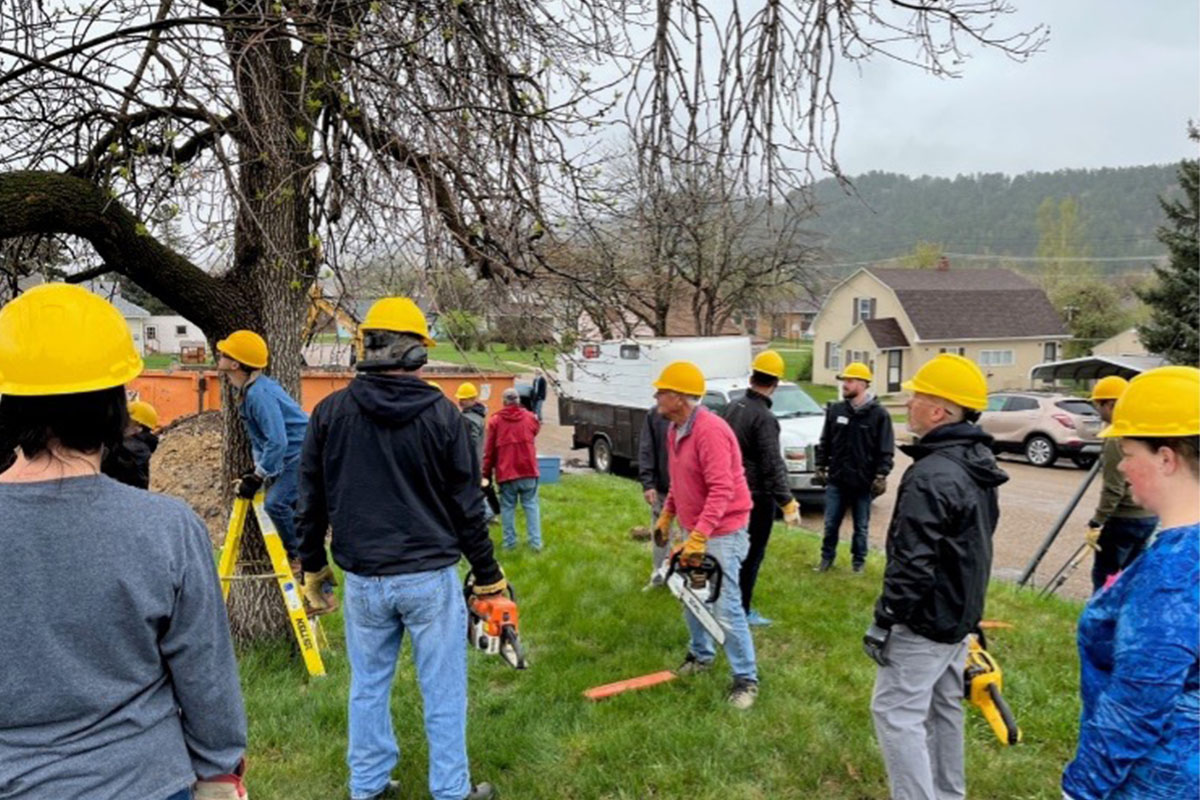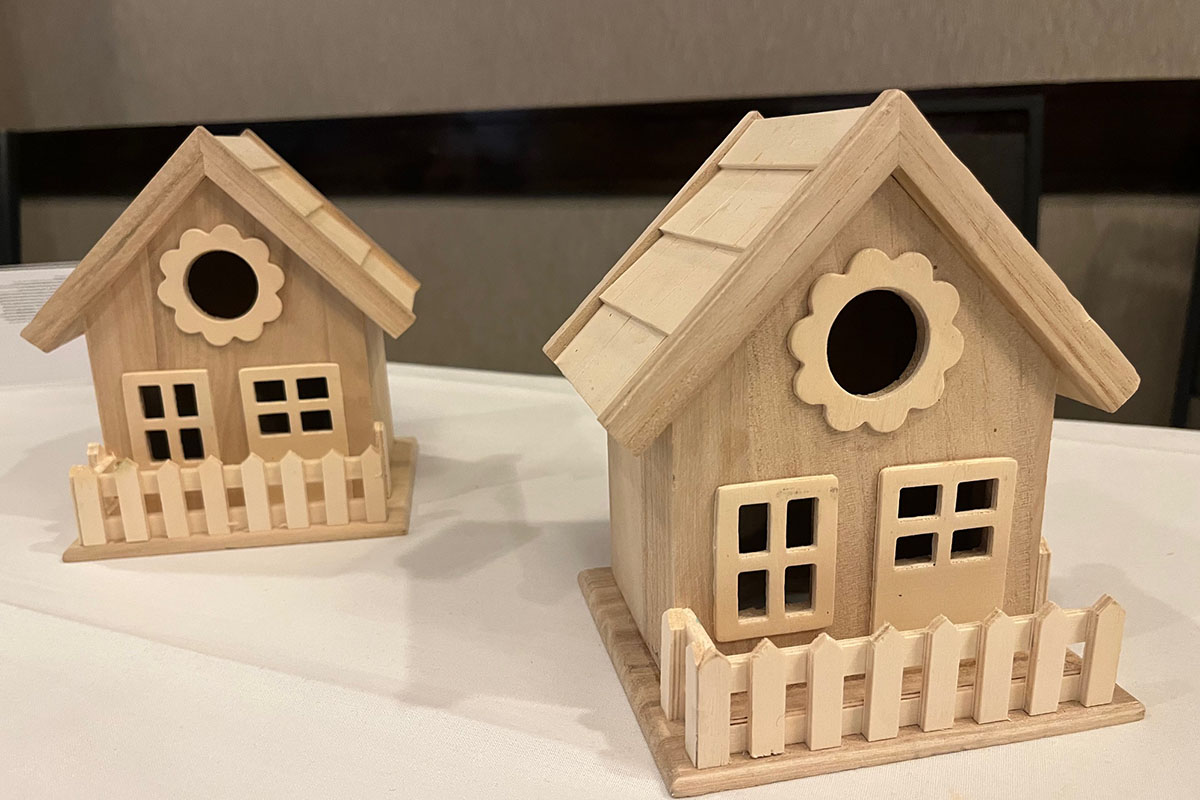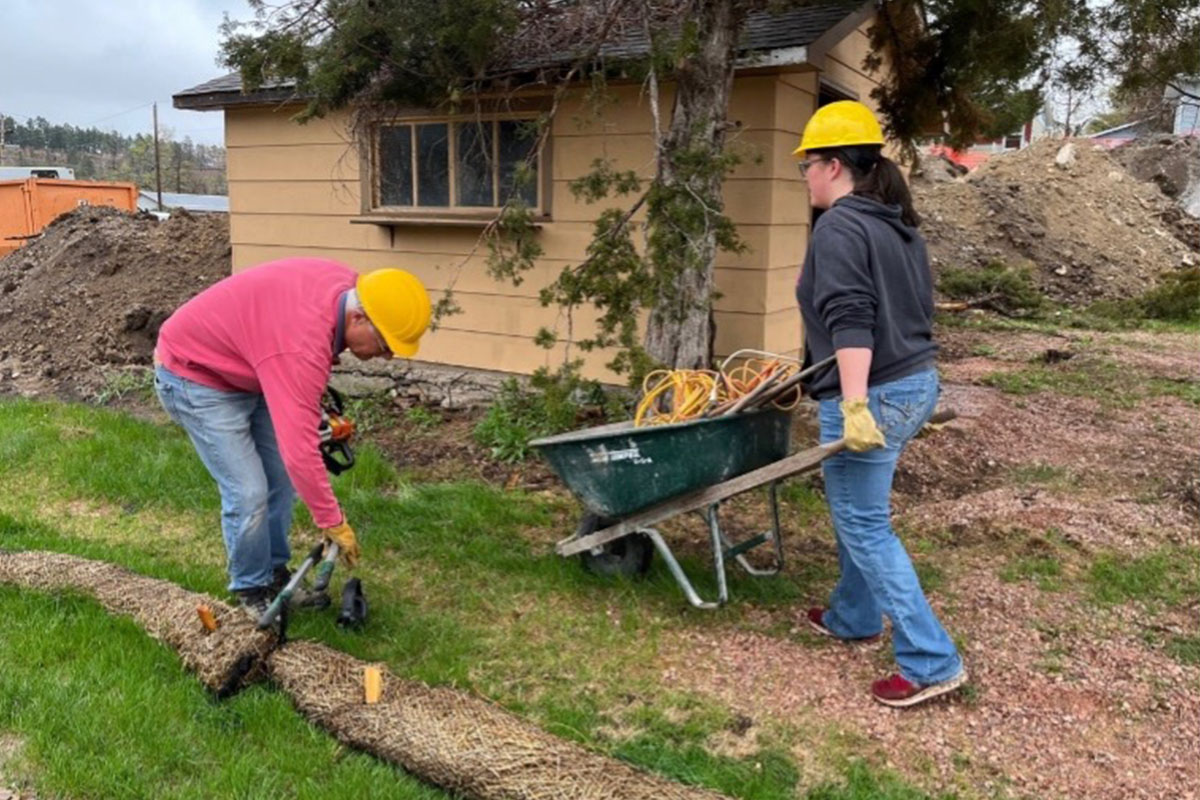Black Hills Area Habitat for Humanity
Bringing people together to build homes, communities, and hope.
Black Hills Area Habitat for Humanity seeks to provide high quality, affordable housing that is easy to maintain and energy efficient. Buyers from all walks of life are welcome to apply to purchase Habitat homes and must qualify with the eligibility requirements.
We are a nonprofit Christian ministry founded in 1990 as an affiliate of Habitat for Humanity International. We have served over 715 people with affordable homeownership and home repair. Habitat homeowners achieve the strength, stability, and independence to build better lives for themselves and their families. This in turn builds stronger communities across the Black Hills.
Volunteer hours,
in-kind contributions of materials and professional services, along with individual and corporate donations help to keep construction costs low.
Learn More


Home
Ownership
Learn More

Home
Repair
Home repair services help keep people living in their homes longer and in safer conditions. We offer a range of services including accessibility upgrades, exterior repairs, and interior renovations.Learn More
Make Payment

Neighborhood
Beautification
Learn More
